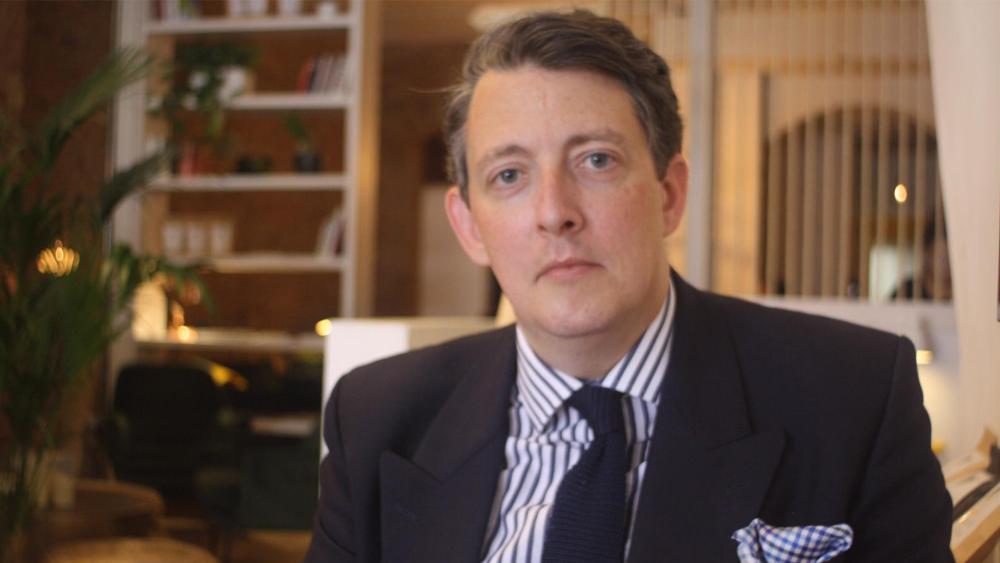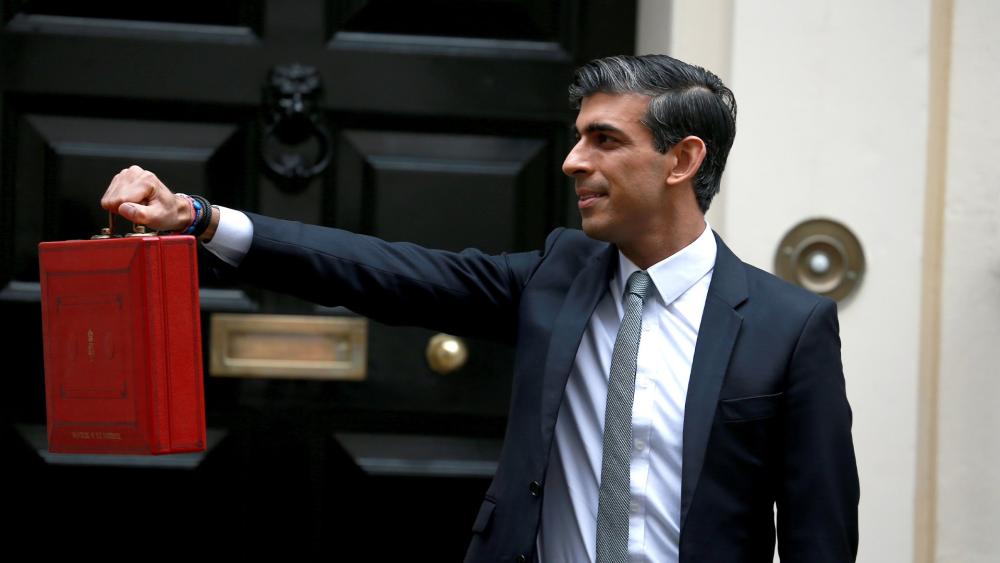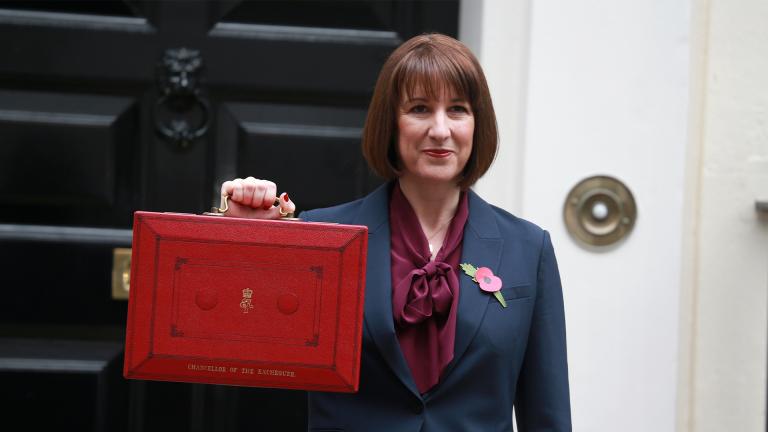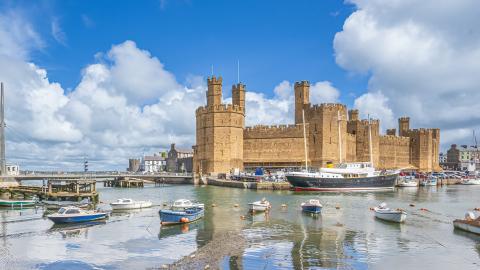The UK Budget: History, traditions and the 2025 announcement
Eliot Wilson talks us through the history and the traditions surrounding the UK Budget, one of the most important days in the British political calendar.
In this guest article, writer and historian Eliot Wilson walks us through the history and the traditions of the UK Budget.
Eliot was a senior clerk in the House of Commons from 2005 to 2016, advising MPs on legislation, working on select committees and as Private Secretary to the Deputy Speakers. He is currently Senior Fellow for National Security at the Coalition for Global Prosperity, Contributing Editor at Defence on the Brink, and a regular columnist for City A.M. and The Spectator.
Budget Day
On Wednesday, 26th November 2025, the Chancellor of the Exchequer, Rachel Reeves, announced the details of her Budget in the House of Commons. On the face of it, this is a straightforward event. The minister in charge of the public finances and economic policy gives MPs their assessment of the current situation and the latest independent forecasts, then announce changes in taxation the government is going to make.
Since George Osborne’s first Budget in June 2010, the speech has included five-year economic and fiscal forecasts prepared by the Office for Budget Responsibility (OBR), an independent public body created to provide unbiased assessments of the nation’s finances.
The Leader of the Opposition, currently Kemi Badenoch, gets the chance to respond. This is the opportunity for the main opposition party to make its criticisms of the Budget and say what it would do differently. After that, the House of Commons spends four days debating the UK Budget, with each day dedicated to a broad policy area like health or education.
Harold Macmillan, Conservative Chancellor 1955-57, was unenthusiastic about the ceremony of Budget Day, and described it as ‘rather like a school Speech Day: a bit of a bore, but there it is’.

From policy to law: the Finance Bill
If you dig slightly deeper, though, you find that the UK Budget is just one part of the process of managing the public finances. The Budget speech is formally entitled the Financial Statement, and most of the tax measures the Chancellor announces do not simply happen immediately. After the Budget has been debated, the government introduces a Finance Bill ‘to grant certain duties, to alter other duties, and to amend the law relating to the National Debt and the Public Revenue, and to make further provision in connection with finance’; in other words, to put the changes to taxation into effect.
Parliament debates this before it becomes law, as it does any bill - with some important differences. The House of Commons goes through the normal stages of scrutiny with the Finance Bill, though changes are very rarely made unless they are proposed by the government: there have only been three government defeats on the content of finance bills in the last 50 years. The Commons will almost inevitably pass the Finance Bill, since an outright rejection is regarded as equivalent to a vote of no confidence, which would force a new general election.
The House of Lords plays a much smaller role. It holds a general debate on the Finance Bill at Second Reading, the first substantive stage of scrutiny, but the other usual stages do not apply and the Lords cannot make any changes to the Finance Bill. This reflects an important aspect of the UK’s uncodified constitution: the House of Commons as the elected chamber has ‘financial privilege’, which means only it can make decisions on tax and public expenditure. This privilege is very old: it is based on rules set down in the 1670s, not long after the English Civil War, but even then was referred to as being well-established.

UK Budget secrets
The contents of the Chancellor’s Financial Statement are tightly restricted before the UK Budget announcement. The Cabinet is usually briefed on the Budget only on the morning it is announced, and, unlike most ministerial statements, no advance copies are given to the opposition parties. This is partly because changes in taxation are market-sensitive and could directly affect the way the economy behaves. As a result, disclosing the contents of the UK Budget is regarded as serious misconduct.
In November 1947, Labour Chancellor Hugh Dalton informally mentioned some of the measures he was about to announce to a friendly journalist as he was walking into the House of Commons itself, no more than 15 minutes before he was due to deliver his speech. He was unlucky: the journalist managed to get the priceless snippets of information to his newspaper, The Star, and they appeared in the early evening edition while Dalton was still on his feet. He resigned as Chancellor the following day.
Traditions & trivia
As a major event in the parliamentary calendar, a number of traditions have grown up around Budget Day, reminders of the long evolution of Parliament and its changing nature.
Before giving the Budget speech, the Chancellor usually has a photo opportunity outside Number 11 Downing Street, their official residence, with the other Treasury ministers. They hold up a red government dispatch box symbolically containing the Budget speech. From 1853 to 2010, the same box was used: made by Wickwar & Co of Poland Street, William Gladstone, four times Liberal Prime Minister and Chancellor of the Exchequer, carried it in 1853 for the first of his 12 Budgets, and all but two of his successors used it until it was retired because of its fragility.
By convention, the Chancellor’s Budget speech is chaired not by the Speaker of the House of Commons but by their senior deputy, the Chairman of Ways and Means (currently Nusrat Ghani). This reflects the fact that, in previous centuries, the Speaker was often regarded as the monarch’s appointee rather than the spokesman of the Commons; by contrast, until 1967, the Budget resolutions which are the basis of the Finance Bill were formally proposed by the Committee of Ways and Means, the chairman of which has been a deputy speaker since 1853. (They are now the responsibility of the Chancellor.)
Gladstone’s first Budget on 18th April 1853 was also the longest continuous Budget speech in history, at four hours and 45 minutes. The shortest was delivered by his Conservative rival, Benjamin Disraeli, on 4th April 1867 and lasted only 45 minutes. Disraeli’s first Budget speech, on 3rd December 1852, ran to more than five hours but is believed to have included a break.
The Chancellor, while giving the Budget speech, is the only MP allowed to drink anything but water in the House of Commons. Gladstone fortified himself with sherry and beaten egg, Disraeli and Healey both opted for brandy and water, Dalton chose rum and milk, Sir Geoffrey Howe drank gin and tonic and Kenneth Clarke enjoyed whisky. Gordon Brown restricted himself to water at his first Budget in 1997 and subsequent Chancellors have followed suit.
The origins of the UK Budget
The elaborate process familiar to us today goes back three centuries. Until the early 18th century, governments tried to meet all their spending commitments from established taxes on land and malt (essential for brewing beer and distilling spirits). But a series of wars and the financial collapse of a major joint-stock company - the ‘South Sea Bubble’ of 1720 - forced the government to borrow money, and by the 1730s servicing the National Debt had become a significant expense. Raising or lowering taxes and handling debt repayment needed management on a year-by-year basis.
In March 1733, Sir Robert Walpole, regarded as the first modern Prime Minister, made a financial statement to the House of Commons proposing an unpopular excise duty on wine and tobacco. He was depicted in a satirical pamphlet as a quack doctor producing dubious remedies from a medical bag under the caption ‘The Budget Opened’: a ‘budget’ was a leather bag often carried by travellers, tinkers and peddlers, borrowed from the French bougette. Applied as a slur to Walpole, it caught on, and by the 1760s was in regular use to refer to the government’s financial plans.













